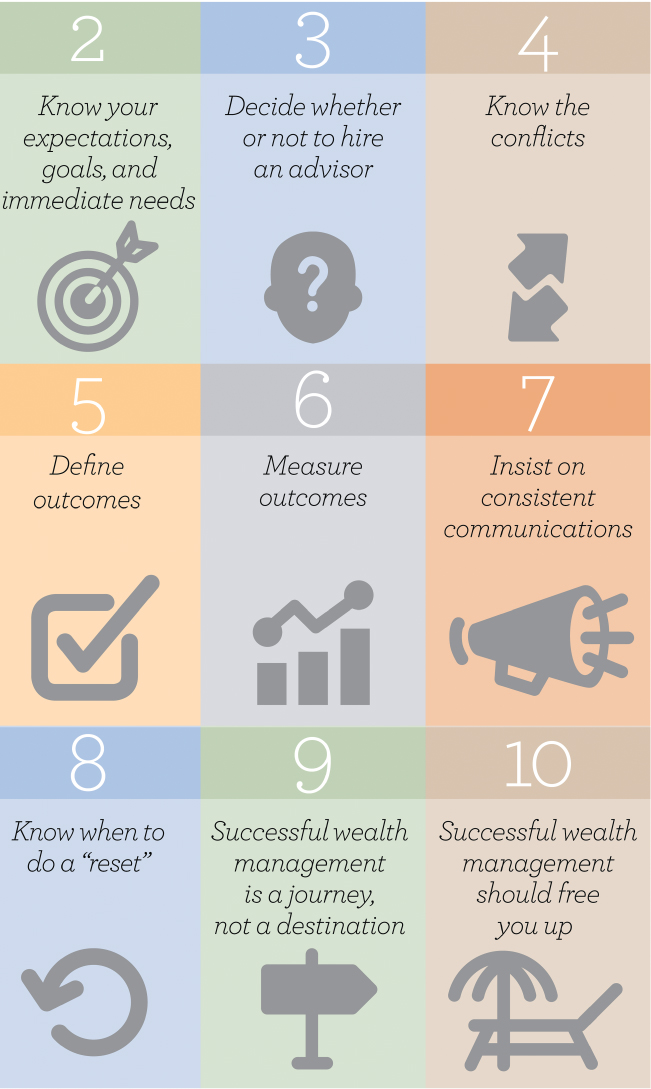CHAPTER 14


Overheard: “I wish I had a crib sheet I could just place under a magnet on my refrigerator, next to the grocery list, so I could handle all this without having to read the Wall Street Journal every day! How about offering wealth management, not for dummies, but for Art History majors?”
Thirty years of witnessing investors and advisors grapple with the challenges of managing wealth gave me ample opportunity to hear their stories. As I listened to investors, I was struck by how each had taken nearly identical steps to find the best approach to managing personal wealth. I reflected on what I heard and came up with 10 principles. These principles are meant for those new to this endeavor (i.e., the newly appointed CEO of My Wealth, Inc.) to help you find your own way to a more successful way to manage your wealth.
- Self‐awareness is critical
Self‐awareness is more vital than any other principle for your ultimate success. You are the expert on your own values, needs, and goals for your wealth. This might take more time than you imagine, but it is the foundation of a successful partnership with your advisor. - Know your expectations, goals, and immediate needs
At least in broad terms. Test them against reality with your own financial knowledge. - Decide whether or not to hire an advisor
Before any fund is bought or investment manager is hired, decide first whether to hire an advisor. - Know the conflicts
Conflicts of interest are unavoidable. Know the conflicts in the transactions of wealth management and verify that your advisor acts as a fiduciary. All conflicts should be documented and monitored. Any business model will hold a natural conflict with your highest hopes and expectations. - Define outcomes
Be sure they are understood and accepted, then clearly communicated to your advisor. - Measure outcomes
In simple formats, and review at time intervals that permit mid‐course adjustments. - Insist on consistent communications
Timely, easy to read, and complete. The goal is “no surprises,” and you need to insist that the reports are of value to you. - Know when to do a “reset”
First, define what a reset means (e.g., a $ amount lost) within your written policy guidelines, and then, once triggered, attend to it immediately by revisiting prior decisions, outcomes, and/or expectations in light of new environments or family events. - Successful wealth management is a journey, not a destination
Once you complete the process, continue to oversee what you have created, manage your advisor, and document how close you come to the outcomes originally set out. - Successful wealth management should free you up
To be true to your values, do what you love, pursue your passion, and discover your own life’s work.
Now that you’ve unwrapped wealth management, enjoy the present. If you like, take a look at the Appendix and approach the subject from an advisor’s perspective. Share your observations and feedback with your advisor and have fun learning together!
